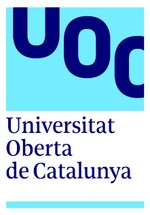Wikipedia and gender gap: Analysis of the deletion negotiations for female and male biographies based on the inclusion criteria of notability
Abstract
This research presents an analysis of the gender gap in Wikipedia’s content, particularly the gender gap in the process of content production for the online encyclopedia. The research aims to understand the gender gap in the process of Wikipedia’s content production, i.e. to understand what is being classified as valid knowledge comparing the evaluation for male and female scientists.
Wikipedia has a gender problem because the majority of contributors are men and it results in a content bias in the encyclopedia (Ford & Wajcman, 2017). According to surveys from 2008 to 2014, there is a gender gap between 9% to 22% among Wikipedia’s editors (Hussain, 2017). Quantitative studies about the content in Wikipedia’s user pages projected 11,3% of female participation (Minguillón et al., 2018) and around 17,6% for the content in 2020 (Le Hir & Wikimédia France, 2017).
To understand the content gender gap, the research project includes: 1) the analysis of the generation of the gender gap in the negotiation process for the deletion of men’s and women’s articles; 2) the analysis of reliable sources that support the notability of male and female scientists, particularly on Science, Technology, Engineering, and Mathematics (STEM); 3) the discourse analysis of the gender gap in Wikipedia in the public sphere, including the interrelations between Wikipedia and mainstream press; and 4) the analysis of the role and actions performed by cyber activists to fight the gender gap in Wikipedia.



